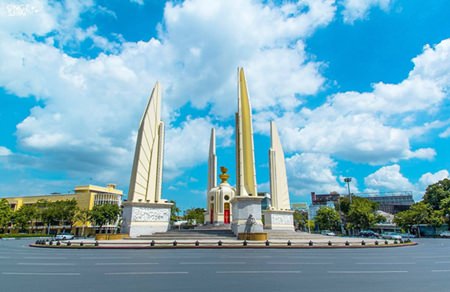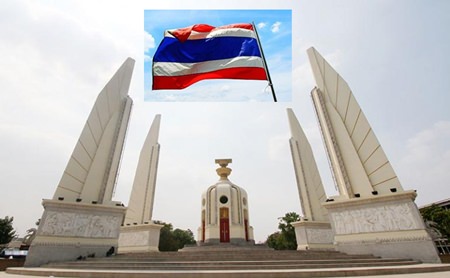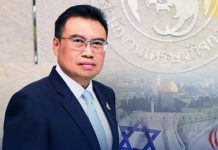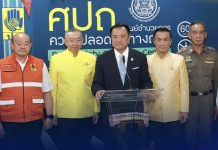Three months after taking over national administrative powers, the National Council for Peace and Order (NCPO) has restored peace and order, expedited reform, and outlined a roadmap towards a sustainable democracy.
Questions had lingered about how the NCPO would move forward in setting up an interim government to further the process, at least until the drafting of a provisional Constitution. With the royal endorsement of His Majesty the King on July 29th, the 48-article provisional Constitution of 2014 has given more clarity on the direction of the country’s step forward.

The nation’s political stage now rests with the National Legislative Assembly (NLA), which has been given various legislative and extended powers by the interim Charter.
Section 6 of the interim Charter stipulates that the NLA comprises 220 members handpicked by the National Council for Peace and Order (NCPO) and appointed by His Majesty the King. Members must be a Thai-born national and at least 40 years of age, as recommended by the NCPO. The NLA is to serve as both the House of Representatives, the Senate, and Parliament.
For an NLA meeting to constitute quorum, Section 13 requires that at least half of all members shall be present. Section 13 also gives the NLA power to draft electoral rules, the duties of its President, Vice-Presidents, committees, and meeting procedures. The NLA can also introduce and deliberate bills and organic laws, submit motions, discuss and draft resolutions, and conduct interpellation. In addition, the NLA is tasked with keeping peace and order, among other matters relating to the performance of its duties.
Section 14 gives His Majesty the King the power to enact an Act by and with the advice and consent of the NLA. A bill may be introduced by no less than 25 members of the NLA, the Council of Ministers or the National Reform Council (NRC) under Section 31 Paragraph 2.
With regard to passing legislation, Section 15, Paragraph 2 says that if His Majesty the King refuses His royal assent to the bill or Organic Law bill and either returns it to the NLA or does not return it within 90 days, the NLA must reconsider such a bill.
If the NLA resolves to reaffirm the bill by the votes of no less than two-thirds of existing members, the Prime Minister shall present such bill to His Majesty the King for His endorsement once again. If His Majesty does not sign and return the bill within 30 days, the prime Minister shall cause the bill to be promulgated as an Act or Organic Act in the Government Gazette.

At a meeting of the NLA, Section 16 gives each member the right to interpellate a Minister on any matter under his authority, but the Minister shall have the right to refuse a reply if he is of the opinion that disclosing details of the matter puts the safety or vital interest of the State at risk or that interpellation is prohibited by the rule of the NLA. The quorum of the NLA, in this case, may be different from the quorum as prescribed by Section 13, Paragraph 1, if so prescribed by the rules of meetings.
For matters relating to urgent issues, no less than one-third of all NLA members may submit a motion for general debate with the Council of Ministers, but the vote of confidence or no-confidence shall not be made.
Section 17 allows for the Council of Ministers to seek advice from the NLA on resolving important administrative issues via a formal request filed by the Prime Minister. A general debate is to be held at a sitting of the NLA, but no resolution is to be passed by the NLA on the debated issue.
Section 18 protects members from having their words expressed in giving statements of facts or opinions, or the casting of votes, used against them in a court of law.
Regarding the appointment of the Prime Minister, Section 19 gives His Majesty the King the power to appoint anyone proposed by the NLA. A Council of Ministers comprising no more than thirty-five Ministers recommended by the Prime Minister also requires royal appointment by His Majesty.
Paragraph 3 gives His Majesty the King the prerogative to remove the Prime Minister from office in accordance with the recommendation of the President of the NLA made by the resolution of the NLA, as proposed by the NCPO. His Majesty may also remove a Minister based on the recommendation of the Prime Minister.
The President of the NLA is required to countersign any Royal Command to appoint or remove the Prime Minister.




